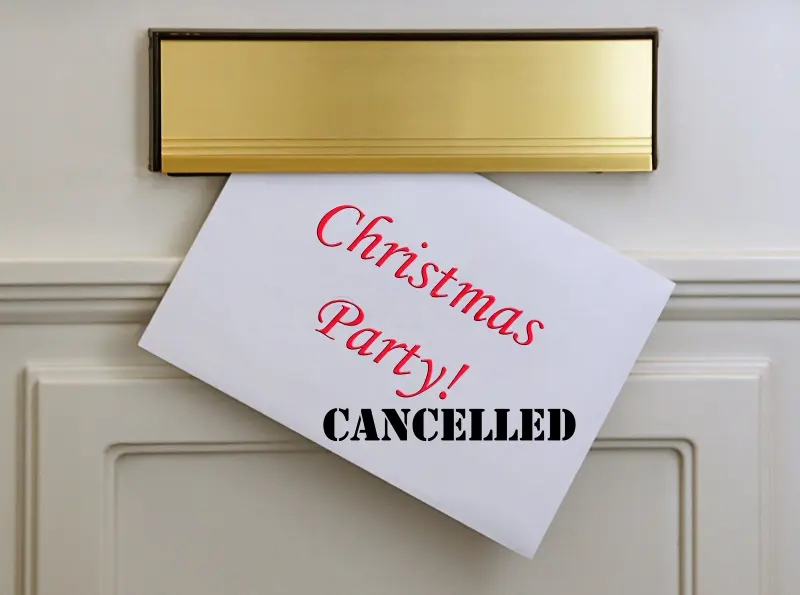

Reality is biting for members of the Electrical Trades Union (ETU) who work for Ausgrid and have had their Christmas party cancelled because of an ongoing wage dispute. This comes as union demands for more pay escalate and strikes are on the rise, leading to concerns about a Pied Piper effect.
There’s also the accusation that union leaders are taking problems in the polls for the Albanese Government as a trigger to secure pay rises before next year’s election.
This week, nurses in 17 Ramsay Health Care hospitals walked off the job for 24 hours, despite being offered a 16% rise over three years, which the union says is really over four years. The AFR reports that “65,000 NSW public sector nurses are striking in support of a first year pay increase of 15 per cent, on top of improved staff-to-patient ratios”.
Meanwhile, 1,500 Woolworths warehouse workers from four distribution centres look set to disrupt Christmas supplies.
Without taking sides, the growing demands for more pay from more workers isn’t just a response to the possibility that a Coalition government could be in power by May, but 13 interest rate rises and the delay to expected rate cuts is also a factor in the actions of these unions.
And then there’s the Pied Piper effect, where one group getting good pay hikes leads to the “I want what they’re having” syndrome.
The AFR’s David Marin-Guzman reveals that “…public sector pay rises outpaced private sector for the first time in four years, according to wage data released on Wednesday, fuelling fears they could prolong inflation and contribute to interest rates staying higher for longer.”
In NSW, police have just won a 19% pay rise over four years and the Rail, Tram and Bus Union is demanding a 32% pay rise over the same time period, and a 35-hour working week.
The Pied Piper effect looks alive and happening!
“University of Wollongong management professor Paul Gollan said the public sector, which employs 25 per cent of health workers and 50 per cent of those in education, had multiplier effects for private sector wage growth,” Marin-Guzman reported.
This isn’t news the board of the Reserve Bank needs to hear as it considers what to do with interest rates.
And with all this going on, the Daily Telegraph says:
“Electrical union members are in meltdown after Ausgrid declared it would be cancelling end-of-year Christmas parties and a traditional half-day off in response to the ongoing industrial action.”
Ausgrid has accused union members of cancelling more than 500 jobs since the start of the wages dispute in August, which included ensuring power is connected for new apartment owners to critical infrastructure.
Ausgrid argues that as Christmas Day falls within the office closure period, “and due to the business being behind on works programs”, it was “unable to gift this additional half day this year”.
But according to the Telegraph, it then stuck it to the union adding, ‘and out of respect’ to its customers, many of whom were being ‘severely’ impacted by the industrial action, Ausgrid would also not be paying or hosting any end-of-year events”, the memo said.
“As many of you are seeing first-hand, industrial action is having a severe impact on many of our customers and service providers,” Ausgrid said.
The union sees this as a “petulant retaliation against its workforce” and points to the $313 million profit Ausgrid made in the 2023-2024 financial year, up from $296 million in the previous year”.
The union’s leadership argues that the move to cancel half-day leave and host or fund any end of year events was “peak Grinch behaviour”.
Ausgrid workers are looking for a 21% increase over three years, which would be 7% a year. If other workers pursued similar rises, it would be inflationary and bad for interest rate cuts.
What’s interesting is that many unions are looking at the profits of their employing companies and saying, “they can afford it”. This does raise an issue I’ve brought up before: are these big companies with no real competition raising prices to consumers, and not only pushing up inflation but also giving incentives for unions to ask for higher wages, which in turn leads to more inflation and no rate cuts?
Looks like a job for a more proactive government and an aggressive Australian Competition and Consumer Commission (ACCC). Undoubtedly, there are some swashbuckling price setters in key industries out there that really need to be named and shamed.